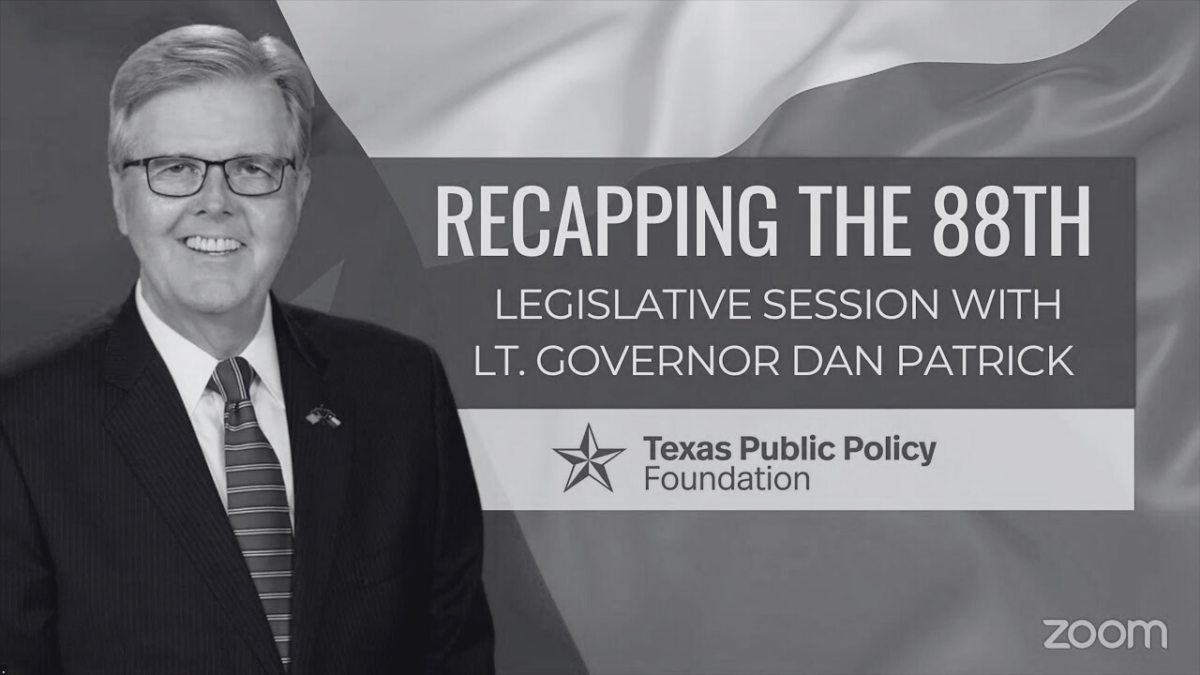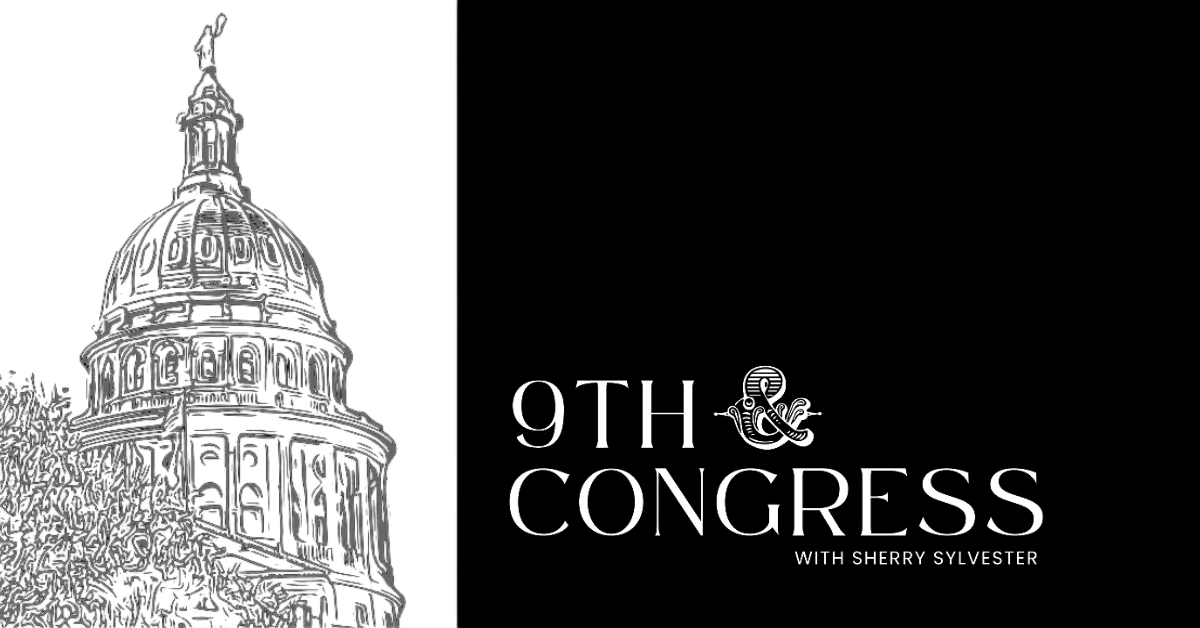Testifying in support of Senate Bill 17, University of Texas at Austin professor Daniel Bonevac told members of the Texas House Higher Ed Committee that Diversity, Equity and Inclusion (DEI) programs function as “campus thought police…indoctrinating students and training activists.”
Dr. Bonevac is in a position to know. He’s a tenured professor who has been teaching at UT for more than 40 years. He has seen what DEI has wrought—up close.
He reports that dissent from the DEI orthodoxy is not tolerated on campus and by dissent he means “laughing at the wrong joke, liking the wrong social media post, asking the wrong question in class” — all of which can lead to serious, career-ending consequences.
We have seen these dramas play out across the country. But throughout the debate on Senate Bill 17, the anti-DEI bill by Sen. Brandon Creighton, R-Conroe and Rep. John Kuempel, R-Seguin, Texas colleges and universities continued to insist, despite piles of evidence to the contrary, that it wasn’t happening at their institutions.
Texas academic leaders routinely testified that DEI was nothing other than a support program for minority students, veterans and students who are the first in the families to go to college. They ignored video evidence of statements like that of former UT Dean of DEI, Skyller Walkes, screaming at a group of students that “an educator in a system of oppression is either a revolutionary or an oppressor. Which one will you identify as?”
Walkes left UT to an even higher ranking job at Columbia. After this report came out, her name was removed from UT’s website.
Texas Tech University officials were incredulous when confronted with evidence showing that a biology professor was disqualified from a job there for stating that he treats all his students equally. The head of DEI at Texas Tech announced last week that she is leaving Texas to take a similar job at the Northern Illinois University.
Last month University of Texas Psychology Professor Kirsten Bradbury asked the following question on a test:
Which sociodemographic group is most likely to repeatedly violate the rights of others, in a pattern of behavior that includes violence, deceit, irresponsibility and lack of remorse?
The correct test answer was “wealthy white men.”
Bradbury issued a non-apology. There’s no indication she has suffered any repercussions from the university.
Christopher Rufo found curriculum materials at University of Texas’ College of Communication promoting the idea that “objectivity,” “individualism,” and “worship of the written word” were all “characteristics of white supremacy culture.”
Rufo also found that a professor of educational psychology and African Diaspora Studies teaches that “white supremacy is so pernicious . . . it is responsible for virtually every ill that we see within our communities.”
These and a host of other egregious examples of DEI in action on Texas campuses were all treated by academic leaders as one-offs perpetrated by some rogue professor or administrator. Once evidence to the contrary surfaced, it was usually quickly removed from university websites.
When the Vice President for Diversity and Community and Engagement at the University of Texas at Austin testified on the bill to end DEI in Texas, she was not asked about the DEI doctrine of white supremacy and gender theory. She said DEI programs at UT were focused “on the success of students.” When legislators questioned her about anti-discrimination programs, she didn’t let them know that civil rights, Title VI and Title IX compliance are separate programs and not part of most DEI offices.
When Gov. Greg Abbott demanded that universities stop using diversity statements which require adherence to DEI principles when hiring faculty, Texas A&M quickly renamed their faculty hiring guidelines from Strategies and Tactics to Improve Diversity and Excellence (STRIDE) to simply the Faculty Hiring Handbook. However, the so-called “Berkeley Rubric” from the University of California, which require candidates to be scored based on their diversity statement, was not removed. This means candidates would still be downgraded for using words like merit, color-blind or best-qualified.
At the House Higher Education hearing on DEI, Texas A&M’s Vice Chancellor for Academic Affairs acknowledged that DEI had been “discovered in some pockets of the university,” but he insisted that the administration was unaware of it.
But A&M’s State of Diversity Report released in 2020 details a vast network of DEI programs throughout the A&M system.
The A&M report parrots the credo of DEI, insisting that, “…racism, hate speech, safety, and belonging issues are evidence of systemic, cultural problems and are enduring trends at Texas A&M.” The report concludes that “dismantle[ing] systemic racism” is essential to advancing Texas A&M’s land-grant mission.
It is unlikely that most Texas academic leaders are committed to the basic premise of DEI—that all American institutions (including all colleges and universities) are predominantly racist, whether consciously or not. Instead, it appears that many college administrators have been captured by DEI hucksters and are in too deep to back out now.
To see how these hucksters work, take a look at the website for the National Association of Diversity Officers in Higher Ed (NADOHE). Their mission has nothing to do with student success. Instead, their goal is to create more jobs for diversity officers to do. They see racism everywhere, whether there’s any evidence or not.
Some believe that NADOHE actually foments unrest on campuses so academic administrators will reach out to them for help. You can see how that could happen. As the National Association of Scholars’ John Sailer has documented, the explosion of DEI programs at the University of Texas began after students protested and made demands.
Ironically, NADOHE’s website makes it clear that DEI is little more than a full-employment act for bureaucrats that creates division and resentment on campus and does nothing to help minority students succeed. It is not just the red states that have figured out the truth about DEI. Last month a debate was held at the Massachusetts Institute of Technology (MIT) entitled “Should DEI Be Abolished?” Even the side arguing in support of DEI agreed that it has “gone off the track.”
Texas’ passage of Senate Bill 17, the strongest anti-DEI bill in the nation, does not mean that Texans don’t believe racism and sexism still exist and must be challenged. But it does mean an end to the massive and complex network of DEI programs built on the premise that white supremacy and racism are the primary driving force of our academic institutions and American life.
The goal of SB 17 is to end the powerful incentives and career-threatening penalties that are mandated by DEI, and to return Texas campuses to places where free speech, academic freedom and intellectual inquiry are the values that drive the institution.
When Gov. Abbott signs SB 17 into law, we can hope it is the end of the campus thought police.
Sherry Sylvester is a Distinguished Senior Fellow at the Texas Public Policy Foundation, and the former Senior Advisor to Texas Lt. Governor Dan Patrick.




